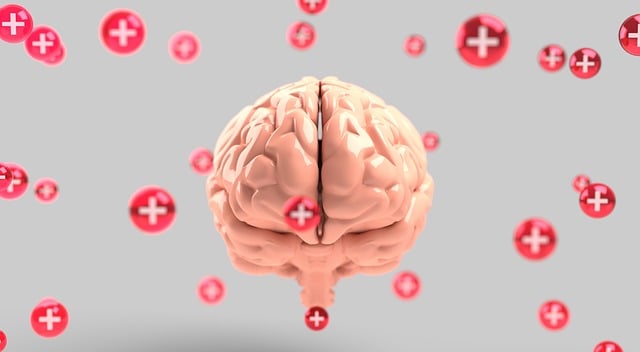Denver Panic Disorder and Anxiety Attacks Therapy offers a holistic approach to managing fear and discomfort, using CBT, mindfulness, and journaling. This program equips individuals with tools to identify triggers, challenge negative thoughts, and develop effective coping strategies, promoting mental wellness. In educational settings, teaching stress management techniques through mindfulness, relaxation, and social skills training enhances resilience and well-being, preventing long-term mental health issues. Integrating these techniques in classrooms benefits students' emotional healing, academic performance, and overall quality of life, with structured programs leading to reduced symptoms and improved mental health outcomes.
Stress management techniques are invaluable tools in addressing Denver Panic Disorder and Anxiety Attacks, empowering individuals to regain control over their lives. This article explores effective strategies to teach students, focusing on practical classroom applications. We delve into the significance of these techniques, offering a comprehensive guide for educators aiming to support at-risk learners. Through understanding anxiety disorders and implementing successful long-term practices, teachers can foster a calm and productive environment, transforming academic experiences and promoting student well-being. Discover how these strategies can be life-changing for students battling Denver Panic Disorder and Anxiety Attacks through therapy.
- Understanding Denver Panic Disorder and Anxiety Attacks
- The Importance of Teaching Effective Stress Management Techniques
- Practical Strategies for Classroom Implementation
- Long-term Benefits and Success Stories from Students
Understanding Denver Panic Disorder and Anxiety Attacks

Panic disorder and anxiety attacks are prevalent mental health challenges that significantly impact individuals’ daily lives. Often characterized by sudden and intense episodes of fear or discomfort, these attacks can be debilitating and left untreated, may lead to avoidance behaviors that further restrict one’s lifestyle. Denver Panic Disorder and Anxiety Attacks Therapy focuses on empowering individuals to manage and overcome these challenges through tailored guidance and compassionate support.
The therapy involves a multi-faceted approach, incorporating techniques from cognitive behavioral therapy (CBT), mindfulness practices, and journaling exercises to help individuals identify triggers, challenge negative thought patterns, and develop coping strategies. A Mental Wellness Journaling Exercise Guidance might include tracking anxiety symptoms, exploring the root causes of fear, and practicing positive self-talk. Additionally, listening to a Mental Wellness Podcast Series Production can offer valuable insights into managing anxiety, while Compassion Cultivation Practices encourage individuals to foster understanding and kindness towards themselves, reducing self-criticism and promoting mental wellness.
The Importance of Teaching Effective Stress Management Techniques

Teaching effective stress management techniques is paramount in today’s fast-paced world where mental health challenges like Denver panic disorder and anxiety attacks are on the rise. Integrating these skills into educational settings equips students with essential coping mechanisms, fostering resilience and promoting overall well-being. Beyond addressing immediate symptoms, teaching stress management offers long-term benefits for depression prevention and self-esteem improvement.
By incorporating strategies such as mindfulness, relaxation techniques, and social skills training, individuals learn to navigate stressful situations proactively. This empowers them to build healthy coping mechanisms, enhance their ability to manage challenging circumstances, and ultimately improve their quality of life. Whether in classrooms, counseling centers, or community programs, these teachings provide valuable tools for both students facing anxiety and those seeking general wellness enhancement.
Practical Strategies for Classroom Implementation

Incorporating stress management techniques into classroom settings can significantly benefit students’ overall well-being and academic performance. Teachers play a pivotal role in fostering a supportive environment that encourages emotional healing processes, especially for those dealing with conditions like Denver Panic Disorder and Anxiety Attacks Therapy. A practical strategy is to integrate mindfulness exercises into daily routines; simple breathing techniques or short meditation sessions can help students manage anxiety on the spot and develop coping mechanisms. These practices not only enhance focus but also teach valuable skills for navigating stressful situations.
Additionally, educators should consider cultural sensitivity in mental healthcare practice by promoting an inclusive atmosphere where diverse emotional experiences are acknowledged. This approach aligns with Mental Health Policy Analysis and Advocacy, encouraging open conversations about mental health challenges. Through interactive workshops or group discussions, students can learn from each other’s perspectives, fostering empathy and a supportive community within the classroom, ultimately contributing to improved mental well-being and academic success.
Long-term Benefits and Success Stories from Students

The long-term benefits of learning effective stress management techniques are significant, especially for students dealing with anxiety and panic disorders. By equipping themselves with tools to navigate stressful situations, students can foster improved emotional regulation and enhance their overall well-being. This not only positively impacts their academic performance but also prepares them for the challenges of adult life.
Success stories from students who have undergone training in Denver, often battling anxiety attacks and related mental illnesses, demonstrate the power of these techniques. Many have reported reduced symptoms, improved ability to manage stress, and enhanced resilience. These positive outcomes are not only personal victories but also testament to the effectiveness of stress management as a tool for breaking down the stigma surrounding mental illness. Through structured programs and dedicated practice, students are empowered to take control of their mental health, leading to better academic success and a more fulfilling college experience.
Teaching stress management techniques can significantly empower students, offering them valuable tools to combat Denver Panic Disorder and Anxiety Attacks. By integrating practical strategies into classroom routines, educators create an environment that fosters resilience and emotional well-being. The long-term benefits are evident in student success stories, demonstrating the profound impact of early intervention and education. Through these teachings, classrooms become spaces not only for academic growth but also for nurturing mental health and building a brighter future.














